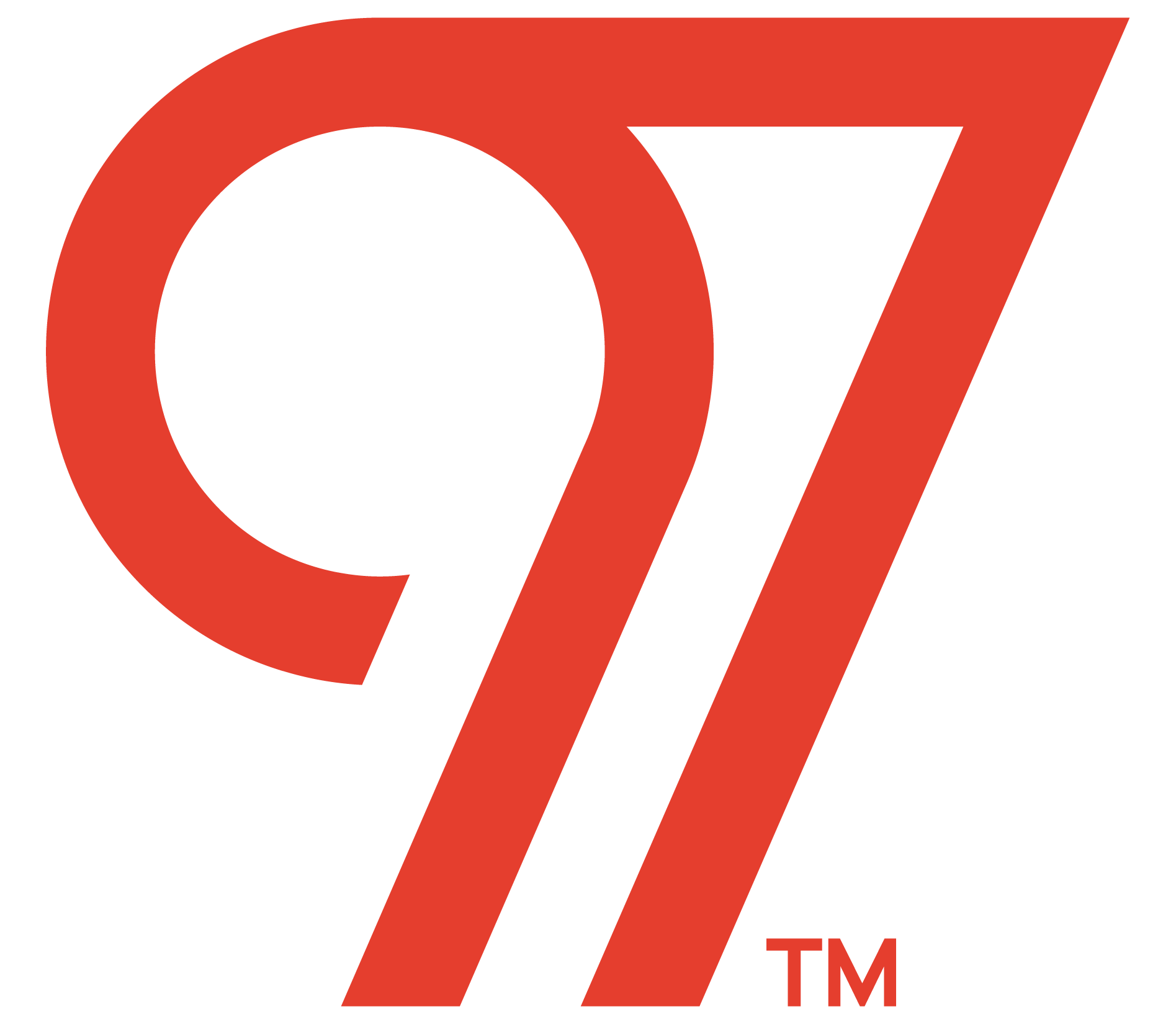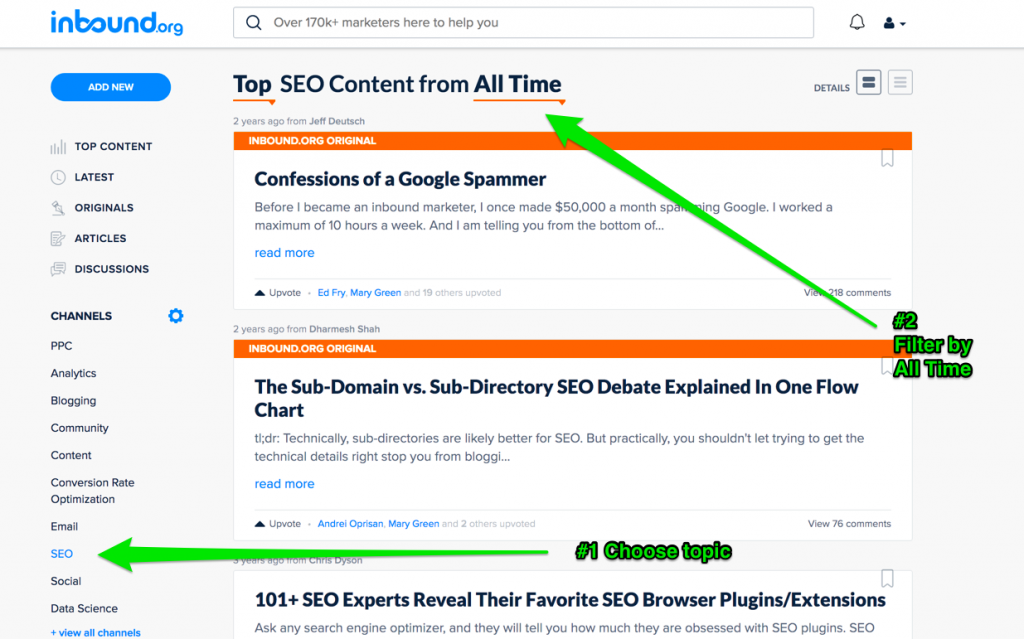I am asked two different questions related to digital marketing far more often than every other. The first is “How do I get into digital marketing?” and the second is “How do I begin to market my business online?” Both questions are essentially the same. The person needs to know where to begin in the digital marketing industry. I’ve taught many people digital marketing, both as a leader and trainer at 97th Floor as well as in formal classroom settings. From these experiences and over time, I’ve collected a lot of guides that will break you into the SEO industry despite what your end goal is. Instead of writing out another post on a topic that has probably been already covered in length, I want to provide you with some of the best articles on a given subject. The resources below are segmented by topic to help you begin learning regardless of where you are on your SEO journey. Not everyone reading this post will be at the same skill level either. Some sections will apply to you and some will be yesterday’s news. Feel free to jump around in this guide and skip to the segments that you find value in.
Disclaimers, Notes, and Tips to Succeed
Within the digital marketing industry, there are MANY regurgitators online (i.e. people who consume large amounts of content and then regurgitate their learnings online). There are far fewer testers. I used to think this was all bad but I have since updated my view and now perceive it as more of a double-edged sword. On one hand regurgitated content can be good because each post gives a new perspective of the same material. If you read a post about Facebook advertising that you didn’t fully understand...no problem. There are 5 other posts on it that may speak to you better. You can then revisit the original post with fresh eyes and a greater likelihood of understanding the author’s points.
Unfortunately, this influx of content further muddies the water of knowing what to read. As a result of so much content, it is very easy to not know which articles will be game changers. I’ve seen many people then begin to ignore most of the content out there. At various times I have fallen into this trap.
Execution is KEY
Through teaching many people digital marketing, there is one thing that separates the people who go on to crush it vs the people who are still in the same place years later. The differentiator is EXECUTION. Anyone can read articles and then debate the importance of ranking factors; however, having concrete evidence of what works from something you’ve done is hard to dispute.
It is impossible to overstate the importance of executing on what you read. There is a clear difference in reading the material and actually putting it into practice. If I could give advice to 10 years younger version of myself, it would be to create a website and try things. Try what you learn from your reading. Test your own hypotheses out. Break things. The feeling you get when you see your own rankings jump 20 positions will cement your learning better than any amount of additional reading.
Understanding the SEO Skeleton
In order to properly understand how to put the giant SEO puzzle together, let’s build a skeleton. This skeleton will give you the core principles that need fleshing out (see what I did there?). These are the basics, the core principles you’ll hear about time and time again.
How Search Engines Work
These resources will help you understand how search engines work.
- How Search Works (Video)
- How Search Works (Interactive Explanation)
Extra Credit
The conversation around how Google works over on SugarRae’s site is a great discussion into deeper theories about how Google works. This gets pretty deep if you are new, so if this is your first rodeo, maybe pocket this one for later.
- A Call for a Search Discussion – How Google Works by Rae (Hoffman) Dolan
- The Anatomy of a Large-Scale Hypertextual Web Search Engine
This is the snowball that started it all. The Anatomy of a Large-Scale Hypertextual Web Search Engine is the paper created by Sergey Brin and Larry Page at Stanford, detailing the structure of what became the first versions of Google. Google has come a long way from much of what is submitted in this paper but the concepts found therein will give you a great understanding of the roots of Google’s search engine. It is a window into the past that will allow you to understand Google on a much deeper level.
Primers to SEO
These are SEO guides to SEO that will lay out the beginning framework for SEO. This type of guide typically will lay out the SEO from A to Z. They are phenomenal for understanding SEO better and how the various moving parts fit together.
- Moz Beginner’s Guide to SEO
- SEJ’s Beginner’s Guide to SEO 2016
- Search Engine Land’s Guide to SEO
- Quicksprout’s Advanced Guide to SEO
- Wordstream’s SEO Basics
- Rand Fishkin’s Whiteboard Fridays
Fleshing Out the Principles
The links in this section will help you solidify the foundation that you've to build by reading one (or more) of the primers listed above.
Site Architecture
- Yoast’s Intelligent Site Structure for Better SEO
- Ch.3: Site Architecture & Search Engine Success Factors by Search Engine Land
- Authority Hackers Guide to Site Architecture
- Website Silos for SEO by Ryan Stewart
Indexation
- Mobile First Indexing by Kasia Perzynska
- How to Get Google to Instantly Index Your New Website by Neil Patel
- Learn About Robots.txt Files from Google
- Great Robots.txt Case Study
- The Ultimate Guide to Robots.txt by Joost de Valk
- Mobile First Indexation
- Google’s Submit URL Tool
Crawlability
- Yoast’s Crawlability
- Get Google to Crawl Your Site Faster
- What are Crawlability and Indexability of a Website?
- How to Deal With Crawl Errors by Eoghan Henn
Technical SEO
- Technical SEO - Fundamental Principles by Tom Bennet
- Core Principles of SEO for JavaScript by Justin Briggs
- Auditing JavaScript for SEO by Justin Briggs
- How We Increased Organic Traffic by Over 50% Using Technical SEO Updates by Matthew Barby
- The Beginner’s Guide to Technical SEO by Neil Patel
On-Page (Optimizations On Your Site)
- On-Page SEO: Anatomy of a Perfectly Optimized Page by Brian Dean
- On-Page SEO 101 by Hubspot
- Neil Patel’s On-Page SEO Cheat Sheet
- Ahref’s On Page SEO: A Data-Driven Analysis
- On Page SEO - Everything You Need to Know by Ryan Clutter
Off-Page Factors (Link Building)
- The Beginner’s Guide to Link Building by Paddy Moogan
- Brian Dean’s Definitive Guide to Link Building
- Link Building Tactics - The Complete List by Jon Cooper
- Charles Float’s Link Building Guide
- The Ultimate Guide to Off-Page SEO by Neil Patel
How to Research Keywords
- Keyword Research for SEO: The Definitive Guide
- Ahref’s Keyword Research
- Tactical Keyword Research in a RankBrain World by Dr. Pete
- 97th Floor’s Advanced Keyword Research Webinar
Understanding Algorithm Updates
- Google Algorithm Change History by Moz
- The Ultimate Google Algorithm Cheat Sheet ---Note - Although this isn’t all the way up to date, it is a good primer on past algorithm updates.
Understanding the History of SEO is important. It helps you project where the industry is moving by understanding where it's been. This goes for blackhat SEO techniques as well. An Illustrated History of Blackhat SEO by Patrick Coombe is a good primer to teach you some of the techniques used in the past for blackhat SEO. Understanding blackhat SEO and where it fits in the whole organic SEO conversation will help you become a much better marketer.
Monitoring Your Success Through Analytics
- Google Analytics Certification Course
- Google Analytics Demo Account
- The Ultimate Guide to Using Google Search Console
- Google Webmaster Central Blog
How to Avoid Google Penalties
- Google’s Search Engine Optimization Starter Guide
- Want to know the rubric that search quality evaluators use at Google to determine if your site deserves a penalty? That’d be sweet right? Here it is: Google’s Search Quality Evaluator Guidelines
Where Should I Go to Find Great Digital Marketing Information?
Moving forward into the SEO space you will need to continue reading and staying up to date. The industry changes so quickly that information quickly gets outdated. There are a handful of ways I like to stay up to date as well as learn new information about a given topic.
Method - Inbound.org
Inbound.org is a great place to find new information about SEO. It is also a great way to cut through a lot of the marketing noise online. Inbound.org is filtered by the community so articles that do well there typically means that the article is worth a read.
Filter Inbound.org articles/discussions by topic like this
Method - Reddit.com/r/bigseo
A quick search via the reddit.com/r/bigseo subreddit can at times provide some good information. There are a lot of marketers there and a lot of questions asked and answered daily.
Method - Slack Channels
The Online Geniuses Slack channel is a great community to be a part of. The people over there are really helpful. There are also ongoing conversations around most digital marketing topics








